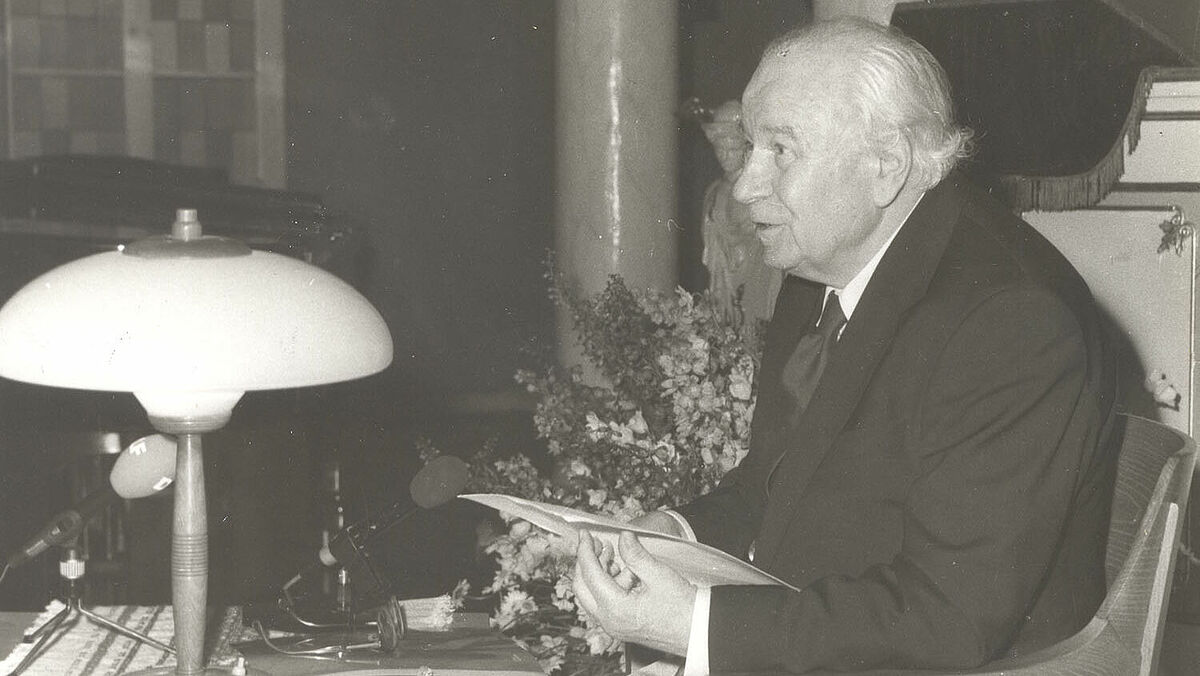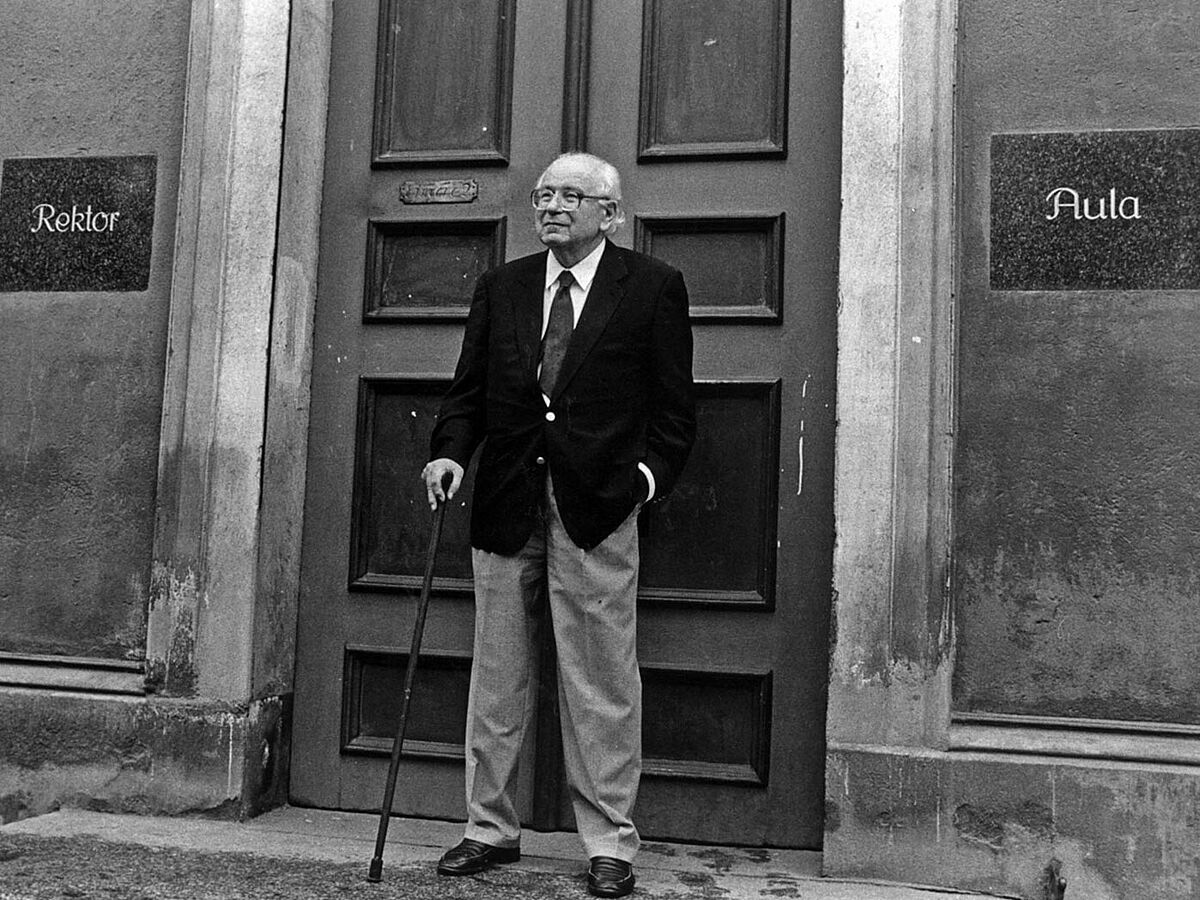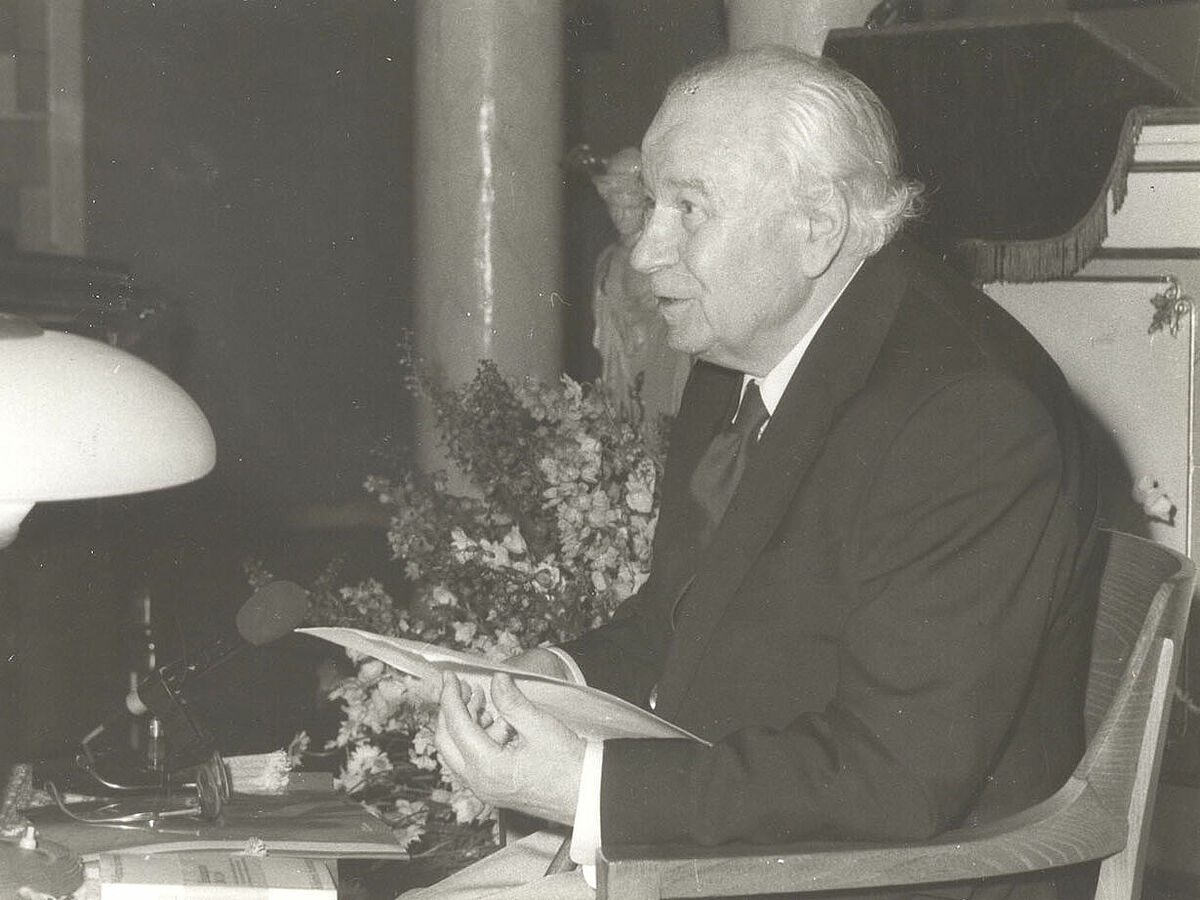Honorary Doctorate Awarded to Wolfgang Koeppen
Wolfgang (Arthur Reinhold) Koeppen was born in Greifswald on 23 June 1906 and passed away in Munich on 15 March 1996. He is considered one of the most important German post-war writers. In 1990 he was awarded an honorary doctorate from the University of Greifswald, and in 1994 he was made an honorary citizen of the town of Greifswald. His trilogy of novels about failure (Pigeons on the Grass, The Hothouse, Death in Rome), which he wrote in the early 1950s and provides a first critical assessment of the forming Federal Republic is of particular importance. Koeppen's literary legacy is preserved by the University of Greifswald.
Life and Career
Wolfgang Koeppen was born in Greifswald in 1923 as the illegitimate son of Marie Koeppen, a seamstress, and Dr. Reinhold Halben, a university lecturer and ophthalmologist. Marie Koeppen lived with her son at his grandmother Emilie Koeppen's house. After the grandmother’s death in 1908, they moved to Thorn and later to Ortelsburg in East Prussia. The family returned to Greifswald in 1919. Due to financial hardship, Wolfgang Koeppen could not continue his studies at the Gymnasium (grammar school) and was forced to switch to the Mittelschule (middle school). Eventually he dropped out of school early and worked as an errand boy for a bookshop. Unfortunately, a desired apprenticeship contract did not materialise. So he kept his head above water from 1920 to 1922 as an assistant ship's cook (home port Stettin) and as a casual labourer in Hamburg until he received a position at the theatre in Wismar in 1924. His dream of directing did not come true, therefore he terminated his contract. He went to Berlin, wrote sporadically for the press and worked in the light bulb test department of the Osram company. In November 1925, Koeppen's mother passed away from a brain tumour in Greifswald. In 1926, he was finally drawn to Würzburg. There he was offered the position of dramaturge and assistant director and was obliged to act in some productions. But even there, he only lasted a year and moved on to Berlin, joining Erwin Piscator's "Dramaturgisches Kollektiv". For several years, Koeppen earned his living from press work and odd jobs.



